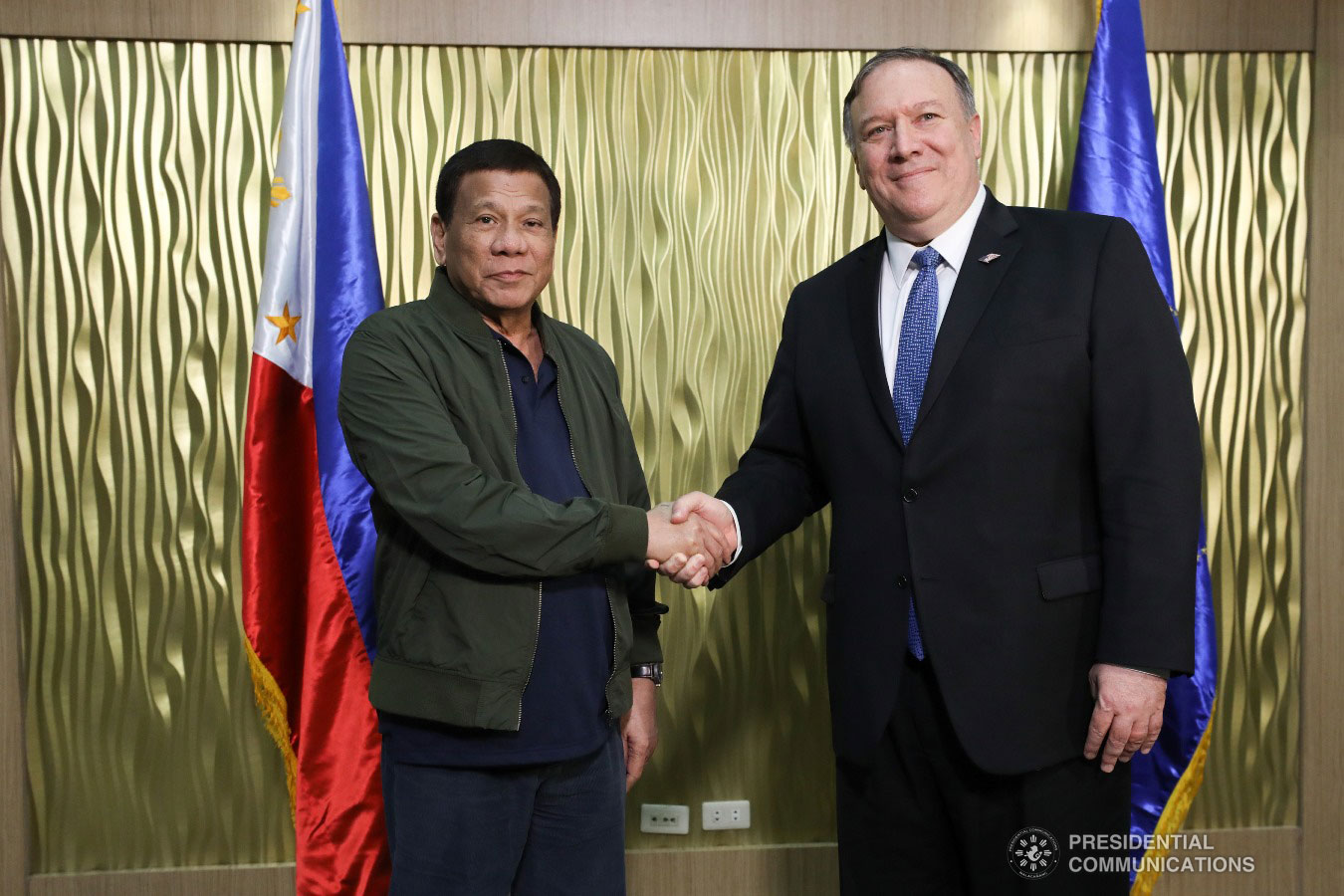
MANILA, Philippines – U.S. Secretary of State Mike Pompeo said Friday that the United States is committed to ensuring the South China Sea remains open to all kinds of navigation and that “China does not pose a threat” of closing the disputed sea lanes.
Pompeo assured the Philippines during his visit to Manila that America will come to its defence if its forces, aircraft or ships come under armed attack in the South China Sea. His comments were an attempt to address local concerns over the vagueness of the allies’ 1951 Mutual Defence Treaty, which the Philippines wants re-examined.
“I think the whole world understands that the Trump administration has made a true commitment to making sure that these seas remain open for the security of the countries in the region and the world, open to commercial transit,” Pompeo told a news conference in Manila.
Washington will back the Philippines and other countries in the region “so that these incredibly vital economic sea lanes are open and China does not pose a threat to closing them down,” Pompeo said.
“China’s island building and military activities in the South China Sea threaten your sovereignty, security and, therefore, economic livelihood, as well as that of the U.S.,” he added.
Chinese officials have refuted such U.S. assertions in the past, saying Beijing will never threaten freedom of navigation in the busy waterway.
The long-seething territorial disputes are a key irritant between Washington and Beijing, which has turned several disputed barren reefs into islands with runways and other military facilities. Beijing has warned Washington against meddling, but the latter has declared that the peaceful resolution of the disputes and freedom of navigation and overflight in the contested areas were in the U.S. national interest.
In addition to China, the Philippines, Vietnam, Malaysia, Taiwan and Brunei have overlapping claims in the strategic waters. U.S. Navy ships have sailed close to Chinese-occupied islands to assert freedom of navigation, provoking angry protests from China and tense moments between the rival naval forces.
Philippine Foreign Secretary Teodoro Locsin Jr. said in the news conference with Pompeo that the Philippines feels confident, citing assurances from the top U.S. diplomat and President Donald Trump to President Rodrigo Duterte that, “We have your back.”
Philippine Ambassador to Washington Jose Romualdez told The Associated Press on Thursday that Defence Secretary Delfin Lorenzana will meet Pentagon officials in Manila this month for initial talks on Manila’s proposal to review the 1951 treaty, which calls on the allies to come to each other’s defence against an external attack. Formal talks would be scheduled after, he said.
While other Philippine officials wanted clarity in the treaty, Locsin differed. “In vagueness lies the best deterrence,” Locsin said.
Duterte and his top officials met Pompeo late Thursday at a Manila air base, where the U.S. official flew in from Hanoi. It’s not clear how Duterte, who has been critical of U.S. security policies and has openly praised China and Russia, responded to U.S. concerns over China’s aggressive actions in the disputed waters.
Duterte, who took office in 2016, has revived once-frigid ties with China and sought Chinese infrastructure funding and trade and investment. He has reached out to Russia and once threatened to end the presence of U.S. counterterrorism forces in the country, although that has not happened.
Duterte has specially been furious over Western criticism of his crackdown on illegal drugs that has claimed the lives of thousands of mostly poor drug suspects. He lashed out at former President Barack Obama over criticisms of the crackdown but has had better relations with Trump, who has invited him to visit the White House.
Pompeo said he raised the importance of human rights, the rule of law and civil liberties in his talks with Philippine officials although he did not elaborate how Duterte or his officials reacted.
“We have an expectation of free and open press everywhere, we communicate that to adversaries, to our partners and friends. We are never shy about talking about its importance,” Pompeo said.